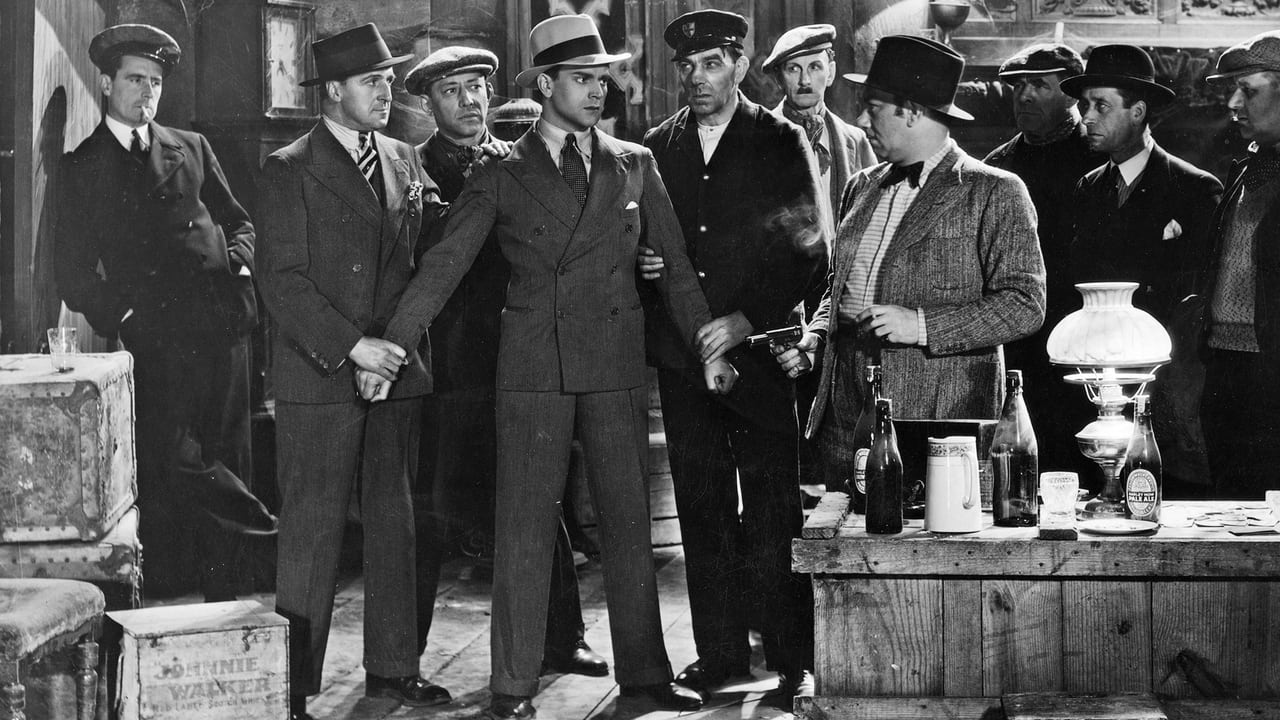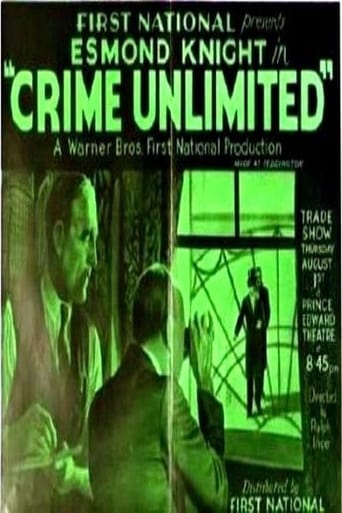Sexyloutak
Absolutely the worst movie.
Beystiman
It's fun, it's light, [but] it has a hard time when its tries to get heavy.
SanEat
A film with more than the usual spoiler issues. Talking about it in any detail feels akin to handing you a gift-wrapped present and saying, "I hope you like it -- It's a thriller about a diabolical secret experiment."
Edwin
The storyline feels a little thin and moth-eaten in parts but this sequel is plenty of fun.
JohnHowardReid
Allegedly based on the 1933 play of the same name by George S. Kaufman and Alexander Woollcott, the British movie "Ctime Unlimited" bears little resemblance to this source at all and in actual fact was based on the 1894 novel, Trilby, by George Du Maurier - a property that Warner Brothers also owned. The most notable film version of Trilby was Svengali (1931) in which John Barrymore played the title character. On this occasion, the role is played - and played well - by sanpaku-eyed Herbert Lom, while Anne Crawford makes a most effective Trilby and David Farrar a more powerful and charismatic Little Billee. The setting has been cleverly changed from opera to a circus, enabling director Harlow to incorporate a number of genuine acts, including a thrilling sequence in which a clown performs a number of breathtaking high wire stunts. Nominal star, Ben Lyon, doesn't get too much in the way. Production values impress and the noirish photography by Otto Heller is a stand-out, particularly in the Herbert Lom sequences.
blanche-2
Lovely Lilli Palmer made her film debut in this routine British quota film, Crime Unlimited, from 1935.She stars with Esmond Knight in this drama about an undercover police office infiltrating a gang of jewel thieves and attempting to meet the unseen leader, Maddick. Along the way, he meets Natacha (Palmer), part of the crime team, but who wants out.This is a pretty good film, nothing special, but it was certainly fun to see the nearly unrecognizable Palmer. Esmond Knight, in his twenties here, lived to be 80 and worked until the very end, despite being blind for two years after the war and losing an eye.
whpratt1
This film is a mystery which concerns a rather sick man who loves to play chess and laughs like a Bela Lugosi who loves to cause all kinds of problems and is being investigated by Pete Borden, (Esmond Knight) as an undercover police man and gets deeply involved with Natasha, (Lilli Palmer) who made her first film debut and adds a great deal of charm to this rather old B picture from England and produced by First National Pictures. If you are interested what woman's hairs styles looked like and the clothes that they wore, this is a great film to enjoy along with the old automobiles that were driven during the Year 1935. Lilli Palmer was so well liked, she eventually came to the United States and married Rex Harrison and the both of them had a great career together.
Benoît A. Racine (benoit-3)
I just saw this on TCM as part of six Teddington studios Warner Bros. made-in-England so-called Quota Quickies never meant for export outside England. I am very impressed. English actors are in every way superior to their American counterparts of the time. The dialogue is literate, as can be expected from a people who made "talking pictures" instead of "movies", like the expression goes. This undercover-cop-acting-as-a-jewel-thief story has all the action elements that one can expect from the Fritz Lang-inspired melodramas of the time and that have survived in the Adventures of Tintin: hidden lairs with two-way mirrors and secret passages, car pursuits, death by piped-in gas, an arch-villain with a double identity who happens to be bordering on lunacy, etc. But the proceedings are saved by the extreme intelligence of the principals: Lilli Palmer, in her first English-language film, and Esmond Knight, a Michael Powell regular, who had absolutely everything to become a sexier, more proactive and muscular Laurence Olivier, but whose career was cut short by his losing an eye in WWII, after which he took on extremely surprising and varied character roles. The films in the Paddington treasure trove are absolutely pristine in image and sound and put to shame many films of the period as far as conservation goes. The direction by a stalwart of the Hollywood system is also equally brilliant. In short, films like this one make it hard to understand why the British public would prefer the American product and the terrible things that have been written about them.

